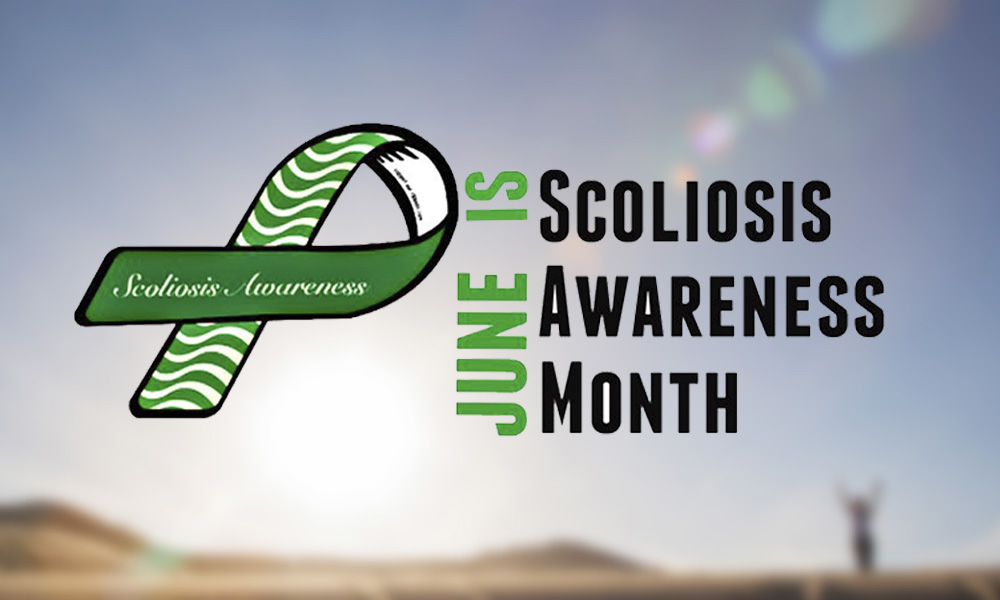June is Scoliosis Awareness Month. It is a time where providers and patients take part in increasing awareness about scoliosis. It’s an important to help others become more aware of how scoliosis can affect your life now and in the future and what can be done to keep it from controlling your life.
The focus of this article is to increase awareness of little known facts as well as misconceptions about scoliosis that can make a world of difference for either a child newly diagnosed with scoliosis or an adult who may have had progression of their curves later in life. Each of these important facts or fictions are linked to additional information for those interested.
Please help us increase awareness about scoliosis by sharing it on Facebook or forwarding this article to someone you know with scoliosis that may benefit from it.
Adolescent Idiopathic Scoliosis (AIS)
Most parent’s whose child is initially diagnosed with AIS have little knowledge about the condition, thus have a steep learning curve to get up to speed about the condition so they can make important clinical decisions about treating their child’s scoliosis. Here are some important Facts vs Fiction to be aware about in scoliosis in both children and adults.
Scoliosis Facts For Children:
- Adolescent Idiopathic Scoliosis is the most common type of scoliosis (80% of all cases)
- It usually starts at onset of puberty as a result of rapid growth of the spine
- There is often a genetic predisposition for scoliosis
- There are Epigenetic Factors that can increase the likelihood of progression of the curves
- The most common “Treatment” recommended by orthopedist for AIS is “Watch & Wait”, which is really no treatment at all
- Yet scoliosis is most correctable early on, when the curves are small
- The second most common treatment for scoliosis is hard bracing (aka – Static bracing)
- The earlier a child develops scoliosis prior to the onset of puberty, the greater they are at risk for progression of their scoliosis
Scoliosis Fiction For Children:
- Watch & Wait is a “Treatment” for Scoliosis
- Hard braces are designed to reduce curves
- Exercise won’t help improve scoliosis
- Soft braces don’t work
- Once a child stops growing they never have to worry about scoliosis progression again
- An orthopedic surgeon is also trained in non-surgical scoliosis treatment
- Scoliosis Surgery is always a permanent solution
Adult Idiopathic Scoliosis and Adult Onset Scoliosis (aka – Degenerative Scoliosis):
The majority of scoliosis in adults is simply a carry over from adolescence. While many adults with scoliosis will have been diagnosed as teens, some will have not been diagnosed with it until later in life, either because their curves progressed and caused pain and an X-ray was taken of their spine or it was found incidentally when an X-ray was taken of another body part and the scoliosis was noticed.
Others will not have any signs of scoliosis previously and X-rays taken between adolescents and a few years before the onset of their symptoms will not show any evidence of scoliosis. This is called Degenerative Scoliosis or Adult Onset Scoliosis and most commonly after menopause.
Scoliosis Facts For Adult Scoliosis
- Scoliosis can slowly progress in adulthood (1° per year), due to uneven forces of gravity
- Scoliosis progression can also be rapid for adult females with scoliosis during pregnancy and menopause
- Scoliosis can start in adolescence, but cause no pain and go undetected until later in life when X-rays are take of the back or torso
- While scoliosis itself does not cause pain, the adaptive changes the body makes frequently does cause pain

